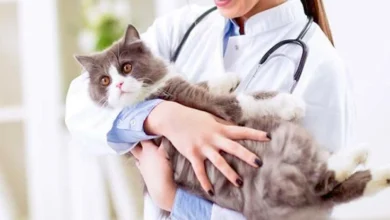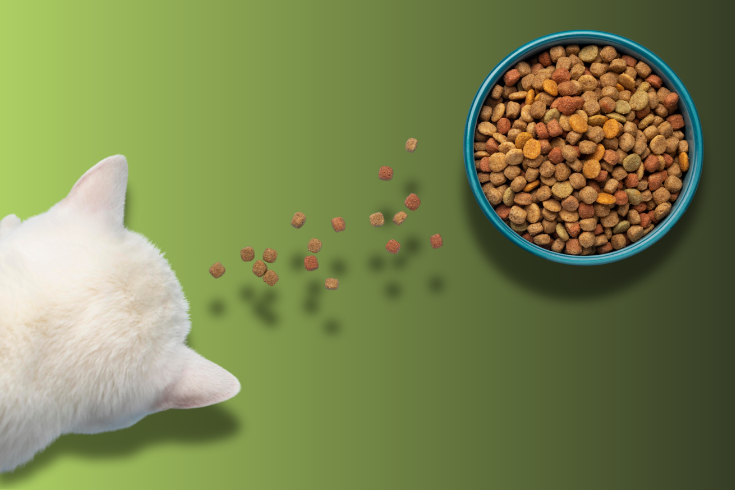
Common Cat Food Allergies | Causes, Symptoms, Solutions
Like humans and dogs, cats can also develop allergies to food due to specific harmful ingredients. These allergies in cats often directly impact the immune system, posing health threats to your feline companions. The harmful reactions can also manifest in different scenarios, such as behavior, digestion, and skin infection.
Eliminating specific ingredients containing allergens from your cat’s diet is crucial to prevent allergies. That’s because cats cannot endure allergies for a long time, and it is advised to identify and diagnose those allergies to keep your felines healthy. In this blog by Pet Life Expert, we’ll talk about cat food allergies and reactions while emphasizing their symptoms and treatments.
Note:
Based on specific cat breed, their size, and health conditions, cat’s might react differently to sensitive food items. Therefore, you need to be careful about with the food given to cats. In case of any sensitive reaction and unusual behavior, instantly contact your veterinarian.
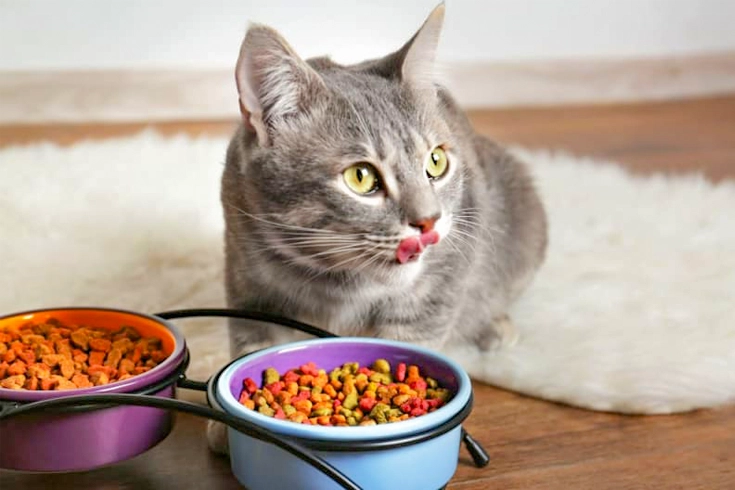
Food Allergies vs. Food Intolerances | Know the Differences
Pet parents might often confuse these terms, but food intolerance and allergies are entirely different concerns. Intolerance shows the incapacity of the digestive system, whereas allergies start with a reaction in the immune system. For instance, cats frequently have lactose intolerance, which is not an allergy because the immune system is not involved.
Food allergies are the most dangerous and sometimes threaten your cat’s life. They can be eliminated only when treated. So, it is suggested that you understand the difference between cat food intolerances and allergies in cats’ food clearly to diagnose the issue timely and get treatment accordingly.
Common Causes of Cat Food Allergies
Although you may be aware of specific food allergies of cats, not everyone knows the possible reasons behind them. We’ve listed the most common causes of cat allergy food for your acknowledgment.
Proteins are Culprits
The most common cause of food allergies in cats is proteins. The most obvious protein triggers are fish, dairy, chicken, and beef, which are ingredients in their diets. When these proteins are consistently added to their diet, they develop hypersensitivity over time.
Grains and Other Additives
Some cats are also allergic to grains; however, this allergy is less severe than that to proteins. Cats negatively react against grains like soy, corn, and wheat. Moreover, preservatives, flavors, and artificial additives found in commercial food can cause allergic reactions.
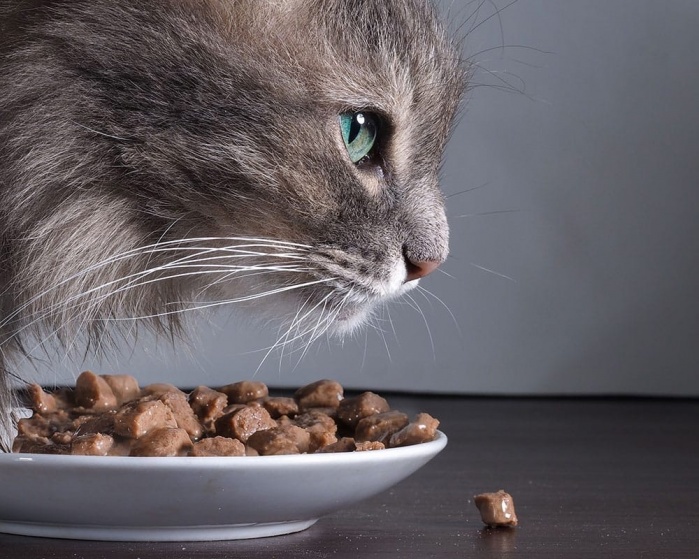
Unusual Ingredients
Novel proteins, including rabbit, venison, and rabbit, are less likely to cause allergies. However, if cats have been exposed to these ingredients, they’ll still react. So, try unusual ingredient as the part of their diet to find suitable hypoallergenic cats and notice symptoms improvement.
How Do Food Allergies in Cat Develop?
Immune System’s Role
When the immune system misidentifies a specific protein as harmful, there comes food allergies. Due to this mistaken identity, antibodies start releasing, causing inflammation and allergic reactions. So, even when your cat has been eating the same food for years, this overreaction suddenly happens.
Environmental/Genetic Factors
Genetics and the cats’ environment play a significant role in developing food allergies. Cats with siblings or parents are at a higher risk of allergies. Likewise, allergen exposure enhances the chance of sensitivities. So, the allergies might transfer from one to another cat if they are exposed to specific allergens.
Finding Symptoms of Food Allergies in Cats
Skin and Coat Problems
Itching, Redness, and Hair Loss
Skin irritation is a common symptom of allergic response. Excessive scratching, redness, sores, and hair loss in localized patches are also common signs.
Chronic Ear Infections
Food allergies have been associated with repeated ear infections, particularly those not sensitive to therapy that might lead to recurrent infections.
Gastrointestinal Issues
Diarrhea and Vomiting
Digestive issues are common in cats with food allergies that often result in chronic vomiting. Additionally, if these signs appear after meals, it could lead to diarrhea.
Weight and Appetite Loss
Because of these allergies, some cats can lose interest entirely in food, which could lead to lethargy and weight loss. Also, digestive issues can lead to weight loss.
Behavioral Changes
Food allergies in dogs can often make cats more irritable and less playful. This can be seen in their grooming habits, like getting used to licking because it soothes their irritated skin.
Steps to Diagnose Allergies in Cat by Food
Cat allergy food needs to be adequately diagnosed and here’s the significance and step-by-step process explained.
Importance of Consulting a Vet
Consulting a professional vet or nutritionist is crucial when your cat has food allergies. Some other conditions mimic allergy symptoms can rule out like mites, fleas, and infections.
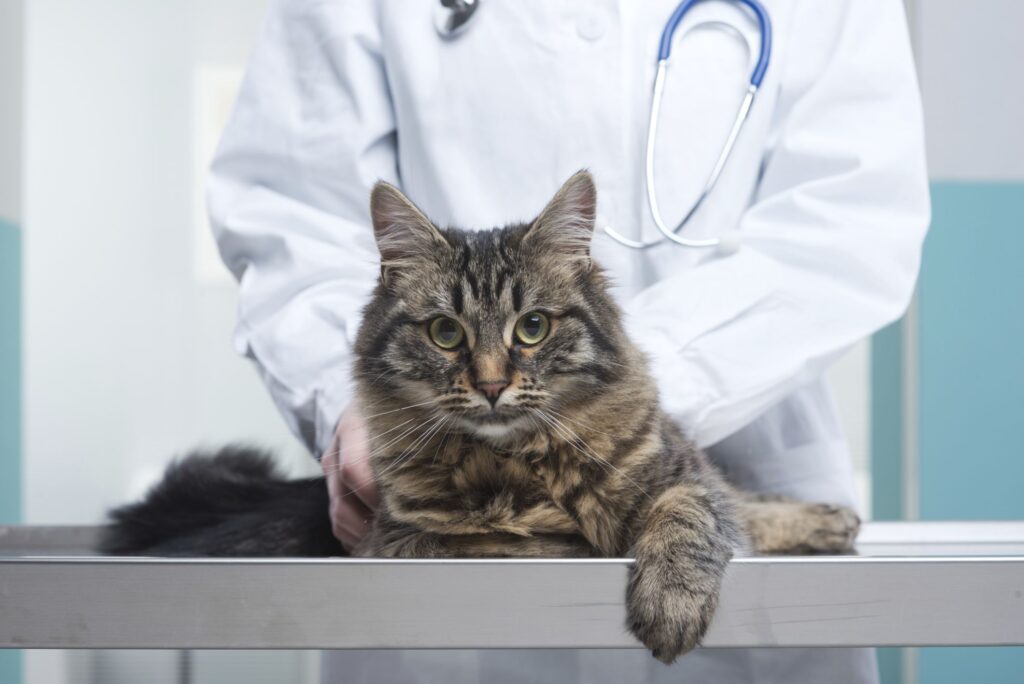
Elimination Diets and Trials Process
Switch to Novel Proteins
The best diet switch is to feed your cats novel proteins along with carbohydrates. This will be the diet they’ve never consumed before, and the options are green peas, venison, and rabbit-based diets.
Stick to the Plan
When you decide to switch to a specific diet, avoid other treats during this period. Sticking to the proper diet is essential, as is avoiding table scraps.
Monitor for Improvement
Usually, it takes 8-12 weeks for cats to show improvement in the allergy symptoms. While they are improving, monitoring their performance and behavior during that specific period is advised.
Reintroduce Suspected Allergens
Then comes the tricky step of this process: gradually including those suspected allergens in your cat’s diet. This step will confirm the triggering ingredients in their diet.
Managing Strategies to Avoid Allergies by Cat Food
Handling food allergies in cats is another suggested step to come up with an allergy control strategy.
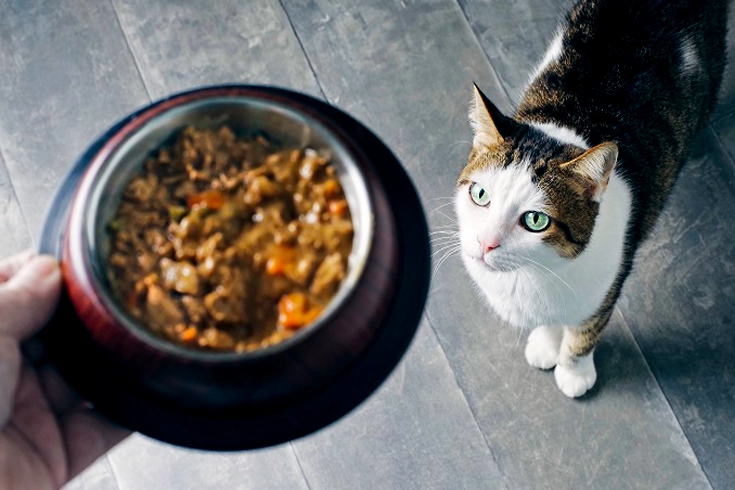
Choosing the Right Diet
Hypoallergenic Diets
Vets often recommend hypoallergenic diets for severe cases. These diets involve hydrolyzed proteins broken down into small portions, making it nearly impossible for an immune system to recognize and react to food.
Limited Ingredient Diets (LID)
As the name says, this kind of diet minimizes the number of ingredients possibly more exposed to allergens. For mild to moderate allergies in cats, these LID ingredients are the best option.
Carefully Reading Food Labels
Whenever you shop for cats, carefully examine the food labels for allergies. Never invest in animal by-products because they contain specific unidentified proteins that can be the triggering element.
Essential Tips To Prevent Allergies From Cat Food
Cat food for allergies differs from their regular diet. To avoid allergy cat food, you need to follow these tips.
Gradually Introduce of New Foods
Progressive switching to a new food will help better adapt to a cat’s digestive system. Also, you can monitor the behavior for strong reactions against a specific food.
Maintain a Stable Diet Routine
Consistency is the key once you find a suitable diet for your cat. That’s because the continual change in diet might disrupt your cat’s immune system and enhance allergy risks even more.
Always Avoid Overexposure
Never overexpose of a diet; instead, rotate protein sources periodically. This step will minimize the risk of an allergy to a specific ingredient.
Treating Cat Food Allergy Symptoms
After you diagnose the symptoms, there comes a step to treat those cat allergies. Here are some essential tips to treat allergies in cats.
Medications and Topical Treatments
Veterinarians may prescribe allergy medications, steroid injections, or medicated moisturizers to treat acute symptoms like itching or irritation. Although these therapies offer short-term respite, they do not address the underlying issue.
Long-Term Management Strategies
To manage allergies, it is necessary to balance dietary changes with ongoing veterinary care. Regular checkups guarantee that your cat remains healthy and free from issues caused by allergies.
Staying a Cat with Food Allergies
When your cat is dealing with food allergies, it is advised to be careful with them. Although caring for them can be challenging, the reward is worth it. As a pet owner, you must be patient with your felines after identifying and managing allergens. Additionally, you can be sure of the well-being of your feline friend.
To Conclude
Although cat food allergies must be carefully monitored, your cat can flourish with the correct diagnosis and a customized diet. Managing this situation is less intimidating if one is proactive and perceptive and following the AAFCO guidelines when selecting food. In this journey, remember that your veterinarian is your greatest ally. Make sure you follow the best diet and switch it gradually to be sure of the harmful ingredients in your cat’s diet. This article will help you acknowledge the reasons, diagnosis, and treatment.
FAQs | Frequently Asked Questions
Discuss Common Foods that Trigger Allergies in Cats?
Fish, beef, chicken, and dairy products are the major red flags that can result in food allergies in cats.
Is It Possible to Cure Food Allergies in Cats?
Some food allergies can be cured easily, but they usually take a long time to disappear.
Which Cat Breed Is Likely to be Prone to Allergies?
Allergies can be developed in any breed, but Persians, Maine Coons, Siamese and relevant breeds are likely more susceptible to allergies.
What are the Symptoms of Cat Food Allergy?
Symptoms of cat food allergies are scratching, itching, and rashes. Gastrointestinal issues can be vomiting and diarrhea and other are ear infections, wheezing, sneezing, and hair loss.
How to Perform Cat Food Allergy Test?
Diet elimination trial is the best and reliable diagnosing test (8-weeks at least) for food allergies in cats. It involves feeding diet to cat that doesn’t include proteins that were previously exposed to them.
What are the Options of Cat Food for Cats with Allergies?
For cats suffering from allergies, the best cat food includes limit ingredient diet, Hydrolyzed diets, and novel protein diets which helps them relieve any kind of issues.
